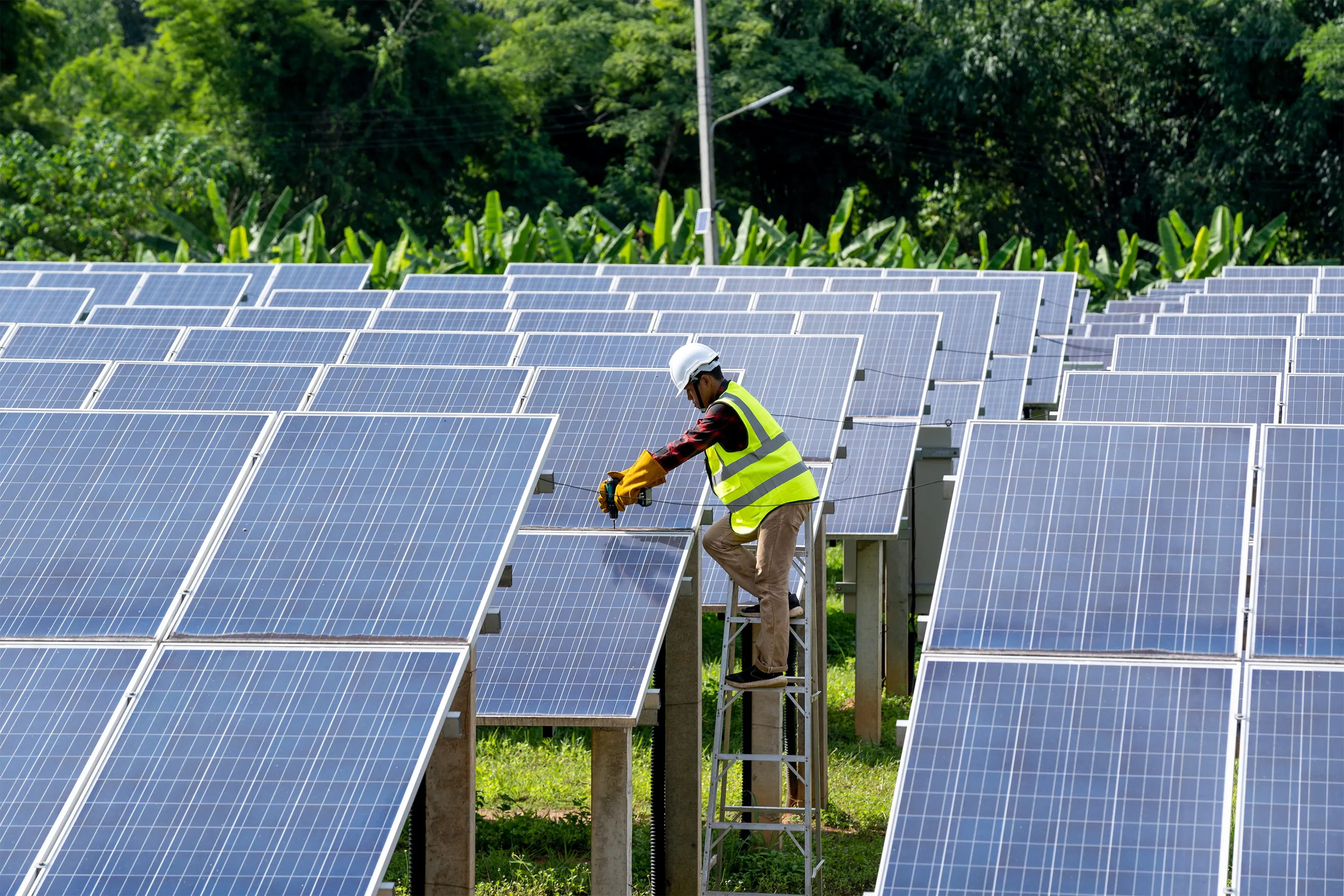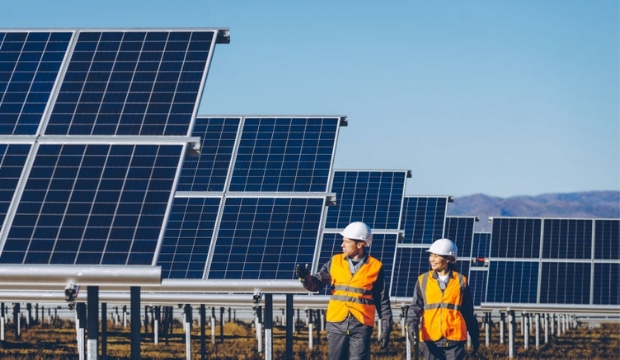Tesla Solar Installer Virginia: Lumina Solar Specializes In Providing Advanced Photovoltaic Solutions For Residences And Companies
History and Founding
Have you ever questioned how a photovoltaic panel company springs from a mere trigger of inspiration into a powerhouse of renewable resource? It often starts with a vision-- one fueled by a mix of innovation, determination, and a pinch of serendipity. The journey of lots of solar business mirrors the advancement of the innovation itself: from bulky, ineffective panels to smooth, high-efficiency marvels harnessing the sun's bounty.
The Early Days
In the late 20th century, when solar energy was still a specific niche idea, pioneers planted seeds for what would become a global movement. Picture a little workshop filled with curious engineers, relentlessly explore photovoltaic cells. Their enthusiasm was palpable, frequently driven by a desire to fight climate modification and reduce dependence on fossil fuels.
One such anecdote has to do with a founder who, inspired by an outdoor camping journey, recognized that even in remote areas, the sun might power vital devices. This easy observation stimulated a company's mission to democratize access to tidy energy.
Establishing Concepts

- Development: Constantly pressing the boundaries of solar innovation to enhance efficiency and sturdiness.
- Sustainability: Devoting to eco-friendly manufacturing and lowering carbon footprints.
- Accessibility: Making eco-friendly energy services budget-friendly and practical for everyday users.
Turning points in Growth
| Year | Secret Event |
|---|---|
| 1985 | Company founded in a small garage, concentrating on research and advancement. |
| 1995 | Commercial solar panel product introduced, gaining regional attention. |
| 2005 | Broadened to international markets, accepting global sustainable energy objectives. |
| 2015 | Presented cutting-edge solar panel technology with boosted energy conversion. |
Isn't it interesting how these incremental steps, typically ignored, shape the energy landscape today? The photovoltaic panel company story is not almost innovation; it's about a relentless mission for a brighter, cleaner future.

Innovations in Solar Panel Technologies
Ever noticed how some photovoltaic panels gleam brighter and last longer? It's not magic; it's the science of photovoltaic performance. Modern photovoltaic panel companies invest heavily in innovations like bifacial cells, which catch sunshine from both sides, increasing energy harvest without broadening roof space. Have you ever wondered why some panels perform much better on cloudy days? That is because of advances in thin-film solar innovation, which thrives under diffused light conditions.
Item Variations Tailored to Distinct Needs
One size never fits all. Solar panel providers now provide:
- Monocrystalline panels for maximum performance and sleek aesthetics, suitable for space-constrained rooftops.
- Polycrystalline panels, which use a cost-effective option without sacrificing too much output.
- Building-integrated photovoltaics (BIPV), combining solar tech effortlessly into architectural aspects like windows and exteriors.
Picking the best item isn't almost in advance cost; it has to do with matching your environment, energy objectives, and long-term cost savings. Homes shaded by trees require panels that stand out in low-light scenarios, something many overlook up until energy expenses climb unexpectedly.
Technical Tips for Ideal Selection
- Assess the temperature level coefficient-- lower values indicate panels lose less efficiency on hot days.
- Look for panels with enhanced anti-reflective coverings to make the most of light absorption.
- Think about the panel's service warranty not simply for flaws, but for ensured power output over years.
- Do not underestimate the importance of the inverter technology paired with the panels; it can make or break your system's efficiency.
Beyond Panels: Emerging Trends
Imagine photovoltaic panels that change their angle immediately to chase after the sun-- tracking systems are ending up being more available, increasing yield significantly. Or solar tiles that mix invisibly into your roofline, transforming your home into a quiet, self-dependent power generator. These innovations are improving what a photovoltaic panel business uses-- not simply products, however incorporated energy solutions.
Market Existence and Global Operations
Ever question why some solar panel companies appear to grow up in every corner of the globe while others hardly make a ripple? The difference lies not simply in technology however in mastering the art of navigating varied markets. Expanding worldwide is like planting seeds in various climates-- you should comprehend each environment's special conditions to flourish.
Take, for example, the intricate dance of logistics and supply chain management. Shipping panels halfway across the world isn't practically range; it's about timing, customizeds, tariffs, and adjusting to regional need variations. A company with robust global operations prepares for these variables, ensuring panels get here on schedule without pumping up expenses. This foresight is no small accomplishment and often separates market leaders from fans.
Key Strategies for Expanding Market Existence
- Localized production: Developing production centers near target audience lowers shipping hold-ups and import complexities.
- Strategic partnerships: Working together with local firms accelerates market penetration and builds trust.
- Adaptive product style: Tailoring solar panel tech to weather, sun intensity, and infrastructure subtleties enhances performance and acceptance.
What about the human aspect? Photovoltaic panel companies running check here globally should fix up cultural distinctions and regulatory nuances without losing sight of their core objective. What works in a sun-drenched desert might fail in a damp coastal area. In some cases, the most ingenious solution is simply listening-- absorbing regional insights to fine-tune technology and approach.
Experts frequently recommend a phased rollout rather than a shotgun growth. Why risk overextension when determined growth constructs sustainable momentum? Scaling sensibly implies balancing aspiration with operational strength - Solar Panel Company Virginia. After all, in the race for sustainable energy supremacy, perseverance can be as valuable as speed
Environmental Effect and Sustainability Practices
When photovoltaic panels first emerged, numerous assumed they carried no ecological luggage. Nevertheless, the truth is more nuanced. The production of solar batteries involves unusual earth metals and energy-intensive processes, which can leave a large carbon footprint before the panels even reach roofs. Yet, the true environmental expense depends heavily on the sustainability practices employed by the photovoltaic panel business throughout the lifecycle of their items.
How typically do we stop briefly to consider what happens to photovoltaic panels at the end of their beneficial life? Unlike batteries or electronics, solar panels can last 25-30 years, but disposal and recycling paths remain underdeveloped in many areas. A company devoted to minimizing environmental harm will have a robust prepare for recycling photovoltaic materials, salvaging important silicon, glass, and metals to avoid land fill build-up.
Key Sustainability Methods
- Utilizing low-impact manufacturing strategies that reduce water and energy usage.
- Implementing closed-loop systems to recycle production waste back into new panels.
- Engaging in transparent supply chain audits to make sure ethical sourcing of raw products.
- Creating panels for easier disassembly to help future recycling efforts.
It deserves keeping in mind that some solar business have originated innovative approaches, such as integrating biodegradable components or utilizing less toxic chemicals throughout fabrication. This not only minimizes ecological strain however also sets a precedent for the market. The concern stays: can the solar market genuinely pivot towards a circular economy design without sacrificing effectiveness or price?
Professional Tips for Examining Sustainability
- Ask about the company's commitment to carbon-neutral manufacturing and whether they balance out emissions.
- Examine if they partner with certified recycling facilities dedicated to solar panel waste.
- Try to find openness reports detailing ecological effects and sustainability objectives.
- Think about the longevity and service warranty of panels as an indirect procedure of resource effectiveness.
In the end, selecting solar energy ought to mean more than just slashing electricity costs; it's about supporting a future where energy is gathered properly and waste is attentively managed. Solar panel companies that welcome this philosophy not just brighten homes but also cast a brighter light on sustainable innovation.